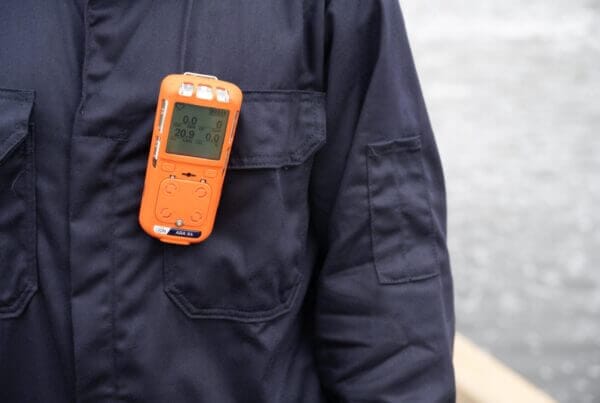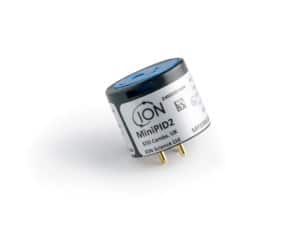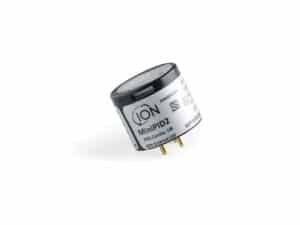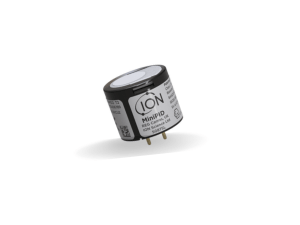
Delivering superior air quality monitoring solutions for improved public health with ION Science’s range of OEM gas sensors.
The impact of air quality on health and wellbeing has been rising on the agenda of governments and private sectors. Sick Building Syndrome has been a recognised cause of illness amongst office workers for almost four decades, caused by poor indoor air quality. WHO estimates that poor urban air quality accounts for up to 7 million deaths each year. In 2014 alone, it was responsible for approximately 1 in 8 deaths globally. ION Science is tackling this health crisis with its range of high-quality gas sensors and monitors, designed to help control and improve air quality for health, wellbeing and the environment.
As an industry leader and OEM producer of gas sensors, detectors and monitors of volatile organic compound (VOC) using photoionisation detection (PID), ION Science is dedicated to improving air quality, health, and reducing harmful emissions. As a key part of their work, they have developed a range of sensitive and widely applicable sensors capable of detecting even the smallest levels of VOCs or other harmful compounds.
In 2020, COVID-19 had one unintended outcome; it caused a global dip in carbon emissions and resulted in much-improved air quality, particularly in urban areas. As people have seen the reality and health benefits of having cleaner air, both inside and outside, the focus to make this a permanent fixture has taken on greater importance. Using gas sensors is a realistic and achievable way to monitor and improve air quality in all environments, workplaces, homes, and outdoor spaces.
ION Science is dedicated to improving air quality at every level, and they manufacture a range of sensors to make this possible. With various levels of sensitivity, size and application, it’s possible to install gas and VOC sensors almost anywhere. Sensors can be installed individually or incorporated into other machines and sites, for fixed or portable use.
The MiniPID 2 range is able to deliver high sensitivity VOC readings in even the harshest conditions. Able to withstand humidity between 0-99% temperatures of -40 to +65 °C, and with an anti-contamination design, the MiniPID range offers 10,000 hours of lamp life, ideal for long term monitoring in any location. Options include the MiniPID 2, PPM, PPM WR, PPB and PPB WR. For whatever sensitivity you need to be detecting, whether it’s in ppm or ppb, over a wide or narrow dynamic range , the MiniPID range is able to help monitor and control air quality indoors and out.
For the highest level of air quality control and monitoring, ION Science offers the High Sensitivity (MiniPID 2 HS) VOC Gas Sensor. Fifteen times more sensitive than other leading market products, the HS VOC Gas Sensor can detect sub ppb VOC levels. This makes it particularly suitable for use indoor air quality measurement, where early detection of rising VOCs levels can allow action to be taken before dangerous levels are reached.
ION Science’s PID sensor offers world leading humidity resistance and long-term stability. For individuals working in high-risk fields such as nuclear, oil and gas, mining or other dangerous environments, ION Science offers three energy sensors, 11.7, 10.6 and 10.0 eV VOC Gas Sensors. The 11.7 sensor detects the most chemicals, but to detect VOCs with a lower ionisation energy, a lower energy level sensor often provides a better solution, as it will detect common aromatics such as Benzene.
ION Science is dedicated to producing products that protect and enhance human life, at work, at home, and while on the move. By highlighting how it’s possible to monitor and control VOCs and manage clean air effectively, ION Science gas sensors enable government policies to be enacted faster, health impacts to be seen quicker and communities can benefit from enhanced air quality in all spaces.
 To ensure the continued improvement of air quality and enhanced monitoring of VOCs is kept to a minimum visit the our most recent guide (Urban Air Quality – The Role and Importance of Monitoring VOCs)
To ensure the continued improvement of air quality and enhanced monitoring of VOCs is kept to a minimum visit the our most recent guide (Urban Air Quality – The Role and Importance of Monitoring VOCs)
For press enquiries please contact: Anjay Sorefan anjay.sorefan@cogent.co.uk or on 07483071840, alternatively contact David Leatham David.leatham@cogent.co.uk or on 07483 071 833.







 United Kingdom
United Kingdom






